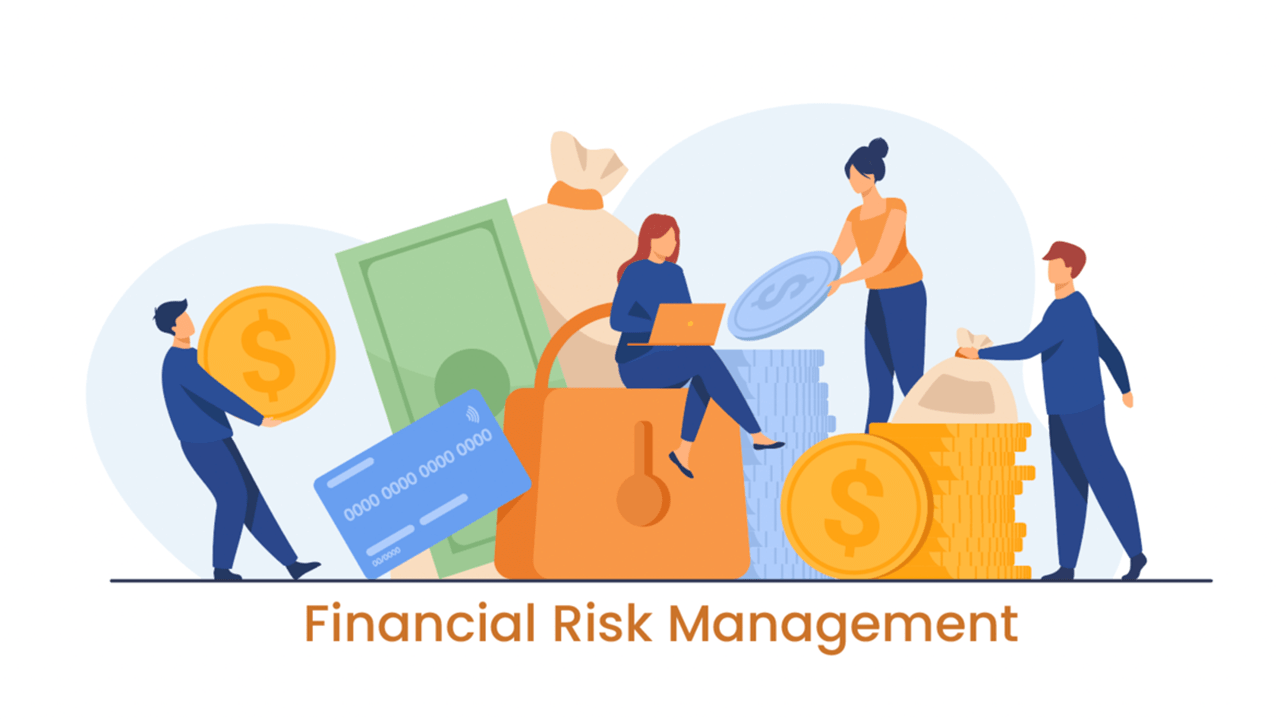Financial Risk Management: Safeguarding Your Business in Malta

Financial risk management plays a crucial role in safeguarding businesses, especially in the ever-changing landscape of Malta’s economy. With various uncertainties and potential threats looming, businesses need to adopt effective strategies to mitigate financial risks and ensure long-term sustainability. In this article, we will explore the concept of financial risk management, its importance, and how businesses in Malta can implement robust risk management practices to protect their interests.
Understanding Financial Risk Management
Financial risk management involves identifying, assessing, and mitigating potential risks that could impact a business’s financial stability and performance. Its primary purpose is to minimize the adverse effects of uncertain events, such as economic downturns, market volatility, or regulatory changes, on a company’s financial health. By implementing risk management strategies, businesses can enhance their ability to withstand challenges and make informed decisions.
Identifying Financial Risks
Businesses in Malta face a range of financial risks that can impact their operations and profitability. Economic fluctuations, market volatility, and regulatory changes are among the common risks encountered. Understanding and quantifying these risks through comprehensive risk assessment and analysis is crucial. This process enables businesses to prioritize risks based on their potential impact and develop appropriate mitigation strategies.
Implementing Risk Management Strategies
Developing a robust risk management framework is essential for businesses to effectively manage financial risks. This framework typically involves several steps. First, businesses must identify and evaluate risks, considering both internal and external factors. Once risks are identified, they can be prioritized based on their likelihood and potential impact. Risk mitigation techniques, such as insurance coverage, diversification of investments, and hedging strategies, can then be implemented.
Risk Management Tools and Techniques
To enhance risk management practices, businesses can utilize various tools and techniques. Financial models, simulations, and stress tests can help assess the potential impact of risks on the business. Regular monitoring and review of risk management strategies allow for timely adjustments and improvements. Additionally, leveraging technology and automation can streamline risk management processes and provide real-time insights for better decision-making.
Compliance and Regulatory Considerations
Compliance with regulatory requirements is a critical aspect of financial risk management in Malta. Businesses must stay updated with the legal framework and ensure adherence to relevant regulations. By doing so, they maintain transparency, accountability, and trustworthiness, which are vital for long-term success. Effective risk management contributes to regulatory compliance and helps businesses navigate complex regulatory environments.
Risk Management Best Practices
Adopting best practices is key to successful financial risk management. Businesses should establish a risk management culture, where risk identification, assessment, and mitigation become embedded in the organization’s DNA. Ongoing training and education for employees ensure a comprehensive understanding of risks and their management. By prioritizing risk management and fostering collaboration among stakeholders, businesses can proactively address challenges and seize opportunities.
The Role of Financial Professionals
Financial professionals, such as risk managers and consultants, play a crucial role in guiding businesses through the risk management process. Their expertise in assessing and mitigating financial risks provides valuable insights and strategies. Engaging external advisors and consultants can bring fresh perspectives and specialized knowledge, enhancing the effectiveness of risk management efforts. Collaboration and communication between financial professionals and business leaders are essential for successful risk management.
Case Studies
Examining real-life case studies can provide practical examples of effective financial risk management. These case studies illustrate how businesses in Malta have successfully mitigated risks and achieved positive outcomes. By studying these examples, businesses can gain inspiration and insights into implementing risk management strategies that align with their unique circumstances.
Conclusion
Financial risk management is vital for safeguarding businesses in Malta’s dynamic economic environment. By understanding potential risks, implementing robust strategies, and leveraging risk management tools, businesses can navigate uncertainties with confidence. Compliance with regulatory requirements, adoption of best practices, and collaboration with financial professionals further enhance risk management efforts. Prioritizing financial risk management enables businesses to protect their interests, maintain stability, and seize opportunities in an increasingly competitive marketplace.
FAQs
What is financial risk management?
Financial risk management involves identifying, assessing, and mitigating potential risks that could impact a business’s financial stability and performance.
Why is financial risk management important?
Financial risk management is essential as it helps businesses anticipate and mitigate potential threats, ensuring their long-term sustainability.
What are common financial risks faced by businesses in Malta?
Common financial risks include economic fluctuations, market volatility, and regulatory changes.
How can businesses implement risk management strategies?
Businesses can implement risk management strategies by identifying risks, evaluating their impact, and prioritizing mitigation techniques such as insurance, diversification, and hedging.
What role do financial professionals play in risk management?
Financial professionals provide expertise and guidance in assessing and mitigating financial risks, enhancing the effectiveness of risk management efforts.
What are the benefits of implementing financial risk management?
Implementing financial risk management helps businesses protect their assets, make informed decisions, enhance financial stability, and gain a competitive edge.
How can businesses assess their financial risks?
Businesses can assess their financial risks through comprehensive risk analysis, market research, scenario planning, and engaging with industry experts.
What is the role of risk appetite in financial risk management?
Risk appetite defines the level of risk a business is willing to accept to achieve its objectives. It guides decision-making and risk mitigation strategies.
What is the difference between insurable and non-insurable risks?
Insurable risks are those that can be covered by insurance policies, while non-insurable risks are typically not covered due to their high unpredictability or catastrophic nature.
What are some effective risk mitigation techniques for businesses in Malta?
Effective risk mitigation techniques include diversifying investments, developing contingency plans, maintaining cash reserves, and implementing robust internal controls.
How can businesses stay updated with regulatory changes in Malta?
Businesses can stay updated with regulatory changes by regularly monitoring official government sources, engaging legal advisors, and participating in industry associations.
What are the consequences of neglecting financial risk management?
Neglecting financial risk management can lead to financial losses, operational disruptions, reputational damage, legal issues, and decreased investor confidence.
Is financial risk management only important for large businesses?
No, financial risk management is crucial for businesses of all sizes. Even small and medium-sized enterprises (SMEs) can benefit from proactive risk management to ensure sustainability.
How often should businesses review and update their risk management strategies?
Risk management strategies should be reviewed and updated regularly, ideally on an ongoing basis, to adapt to changing market conditions and emerging risks.
What role does technology play in financial risk management?
Technology plays a significant role in financial risk management by providing advanced analytics, automation of processes, real-time monitoring, and enhanced data security.
What is the impact of geopolitical risks on financial risk management?
Geopolitical risks, such as trade disputes or political instability, can have significant implications for financial risk management, leading to market volatility and increased uncertainty.
Can financial risk management help businesses seize growth opportunities?
Yes, effective financial risk management allows businesses to identify and assess potential risks associated with growth opportunities, enabling them to make informed decisions and maximize their chances of success.
How can businesses build a risk management culture within their organization?
Building a risk management culture involves fostering awareness, accountability, and proactive risk identification and mitigation throughout the organization. It requires leadership commitment and employee engagement.
What are some common challenges in implementing financial risk management?
Common challenges include lack of resources and expertise, resistance to change, complexity of risk assessment, and balancing risk mitigation with business objectives.
What is the relationship between financial risk management and financial planning?
Financial risk management and financial planning are interconnected. Effective risk management informs and supports the financial planning process, ensuring realistic and achievable goals.
What are the ethical considerations in financial risk management?
Ethical considerations in financial risk management include transparency, fairness, and accountability in decision-making, as well as responsible risk-taking to protect stakeholders’ interests.
Can businesses outsource their financial risk management functions?
Yes, businesses can outsource certain aspects of their financial risk management to specialized firms or consultants. However, ultimate responsibility for risk management still rests with the business itself.
What are the key steps in developing a risk management framework?
Key steps include identifying risks, assessing their likelihood and impact, implementing mitigation strategies, monitoring risks, and regularly reviewing and updating the framework.
What is the role of risk communication in financial risk management?
Effective risk communication ensures that stakeholders have a clear understanding of potential risks, their potential impact, and the actions being taken to manage them. It fosters transparency and trust.
How can businesses balance risk-taking with innovation and growth?
Balancing risk-taking with innovation and growth involves conducting thorough risk assessments, implementing risk mitigation measures, and fostering a culture that encourages calculated risks within acceptable limits.
What are the consequences of over-reliance on risk management techniques?
Over-reliance on risk management techniques without continuous monitoring and adjustment can lead to complacency and ineffective risk management. It is important to maintain a dynamic and proactive approach.
How can businesses ensure effective communication and collaboration within their risk management processes?
Effective communication and collaboration can be ensured through regular meetings, sharing relevant information, involving key stakeholders, and encouraging a culture of open dialogue and feedback.
How does financial risk management contribute to long-term sustainability?
Financial risk management helps businesses identify and mitigate potential risks that can threaten their long-term viability. By protecting assets and minimizing losses, it contributes to sustainable growth.
What are the limitations of financial risk management?
Financial risk management cannot eliminate all risks entirely, as uncertainties are inherent in business operations. However, it aims to minimize the impact and likelihood of adverse events.
Can businesses seek external support for risk management in Malta?
Yes, businesses can engage external risk management consultants, financial advisors, or specialized firms to support their risk management efforts and provide expert guidance.
Recommended Posts

Overview of Business Finance in Malta
May 17, 2024

How to Start Your Malta Business Journey
May 17, 2024

WA.Technology Offers Centurion FC Odds
May 17, 2024




